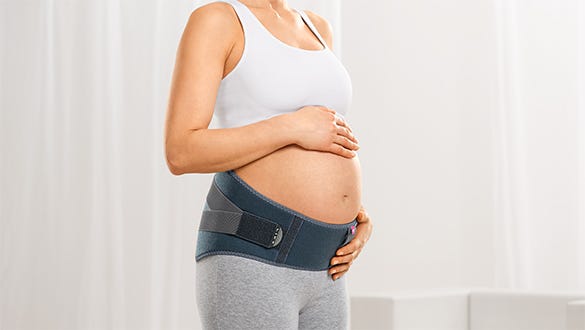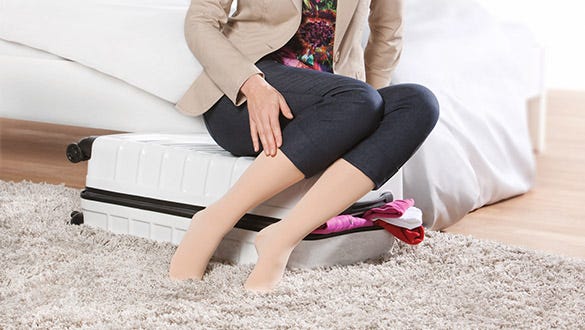- Free First Class Delivery
- Buyer Protection
- Secure Online Shopping
- Healthcare Professional? Click here
Back pain during pregnancy
As your tummy grows, your lower back hurts – What to do?


Categories
Low back pain during pregnancy
As pregnancy continues, your bodyweight, centre of gravity and vital statics change. Changing weight distribution can lead to back pain in the lumbar spine. The hormonal change, especially in preparation for birth, also causes loosening of the ligaments that stabilise the pelvis. This can lead to further pain in the pubic symphysis (symphyseal pain) as well as to back pain and pelvic instability.
Back pain: a constant companion during pregnancy
Back pain is one of the most common complaints during pregnancy and usually peaks between the 24th and 36th week. This is particularly noticeable when getting up, bending forward and dressing or undressing. Low back pain accompanies pregnant women throughout the day – and can affect sleep at night. Sitting for long periods is often perceived as unpleasant so an expectant mother should take regular breaks when travelling long distances by car as well as change their sitting posture more often and plan in rest periods.
Back pain during pregnancy should always be checked by a doctor
In case of advanced pregnancy, uterus contractions, urinary tract congestion or pressure from the baby’s head on sensitive nerves can be experienced as back pain. Pregnant women should thus always have their back pain checked by a doctor.
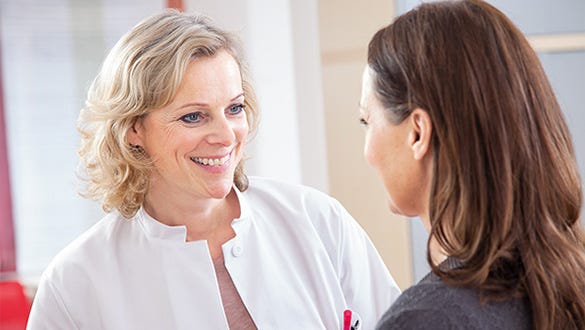

The female anatomy: susceptible to back pain – especially during pregnancy
Women’s body structure makes them more prone to back pain than men. Back problems experienced before pregnancy tend to intensify during pregnancy.
Physical changes during pregnancy that can cause low back pain
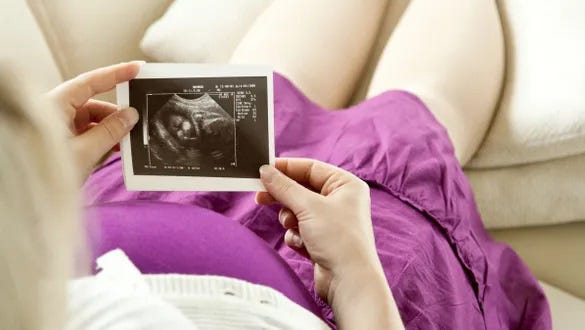

- Hormonal changes: In preparation for birth, hormones ensure that tendons and ligaments in the pelvic area loosen – this applies particularly to the intervertebral discs, sacroiliac joints and pubic symphysis (symphysis loosening). This reduces stability in the pelvic ring and lower back.
- Shift in centre of gravity: The more that baby grows, the more the body’s centre of gravity shifts forward and the changed posture leads to back pain.
- Weight gain: Increasing weight during pregnancy naturally puts more strain on bones, joints, muscles and tendons also.
What to do against back pain during pregnancy?
- Pregnancy exercises: Pregnancy exercises, for example, in water, stabilise and strengthen the back and pelvis.
- Physiotherapy and manual therapies: These help alleviate the discomfort.
- Upright posture: Try to maintain an upright posture when carrying out your everyday activities in order to avoid incorrect posture. The latter can both cause and aggravate back pain. A special pillow between the knees can bring relief for side sleepers at night.
Relief and stabilisation thanks to pregnancy belt
Pelvic instability primarily leads to pain in the pelvic girdle, both front on the symphysis and back on the two SIJ (sacroiliac joints = joints between sacrum and ilium). In some cases, pain in the sacroiliac joints can radiate to the lumbar spine..
There are special support belts that relieve the lumbar spine, reduce the shift in the centre of gravity due to the growing abdomen and alleviate back pain.
It is also important to help the body regenerate well after pregnancy.
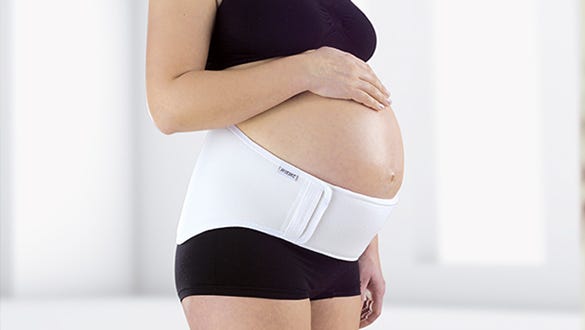

What to do if your back pain persists after pregnancy?
Take back pain seriously in case it persists after birth. Describe your symptoms to your doctor. He or she will advise you on the therapeutic options (which depend on the cause, type and localisation of the pain): these range from wearing a support or orthosis to taking medication or doing physiotherapeutic exercises to taking surgical measures.


